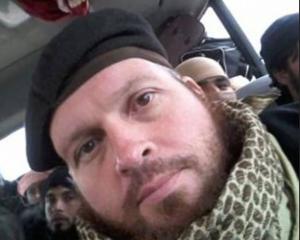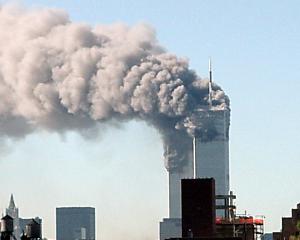The Syrian government said women and children could leave the besieged city and that rebels should hand over the names of the men who would remain. A US State Department spokesman said an evacuation was not an alternative to immediate aid.
"We firmly believe that the Syrian regime must approve the convoys to deliver badly needed humanitarian assistance into the Old City of Homs now," said spokesman Edgar Vasquez. "The situation is desperate and the people are starving."
He said the people of Homs must not be forced to leave their homes and split up their families before receiving aid.
After long months of fighting, much of Syria's third biggest city has been reduced to rubble and people inside are under siege, cut off from supplies.
The city's fate has turned into a test of whether the first peace talks attended by both sides in the three-year war can achieve practical measures on the ground, while a broader political settlement seems as remote as ever.
The U.N. mediator said he hoped Monday's talks in Geneva could cover the central issue that divides the two sides - Syria's political future and that of Assad - but both sides immediately adopted entrenched positions.
"Once again, I tell you we never expected any miracle, there are no miracles here. But we will continue and see if progress can be make and when," U.N. envoy Lakhdar Brahimi said.
Syria's government delegation presented a document for negotiation which did not mention a transition of power, Syrian television said.
The government's "declaration of basic principles" said Syrians would choose a political system without "imposed formulas" from abroad, an apparent reference to Western and regional demands that Assad step down.
The opposition, which wants Assad to quit as part of arrangements for a transitional government, immediately rejected the proposal.
"The declaration is outside the framework of Geneva, which centres on creating a transitional governing body. It fails to address the core issue," the opposition's chief negotiator, Hadi al Bahra, told Reuters.
STRATEGIC LOCATION
Homs, occupying a strategic location in the centre of the country, has been a key battleground. Assad's forces retook many of the surrounding areas last year, leaving rebels under siege in the city centre, along with thousands of civilians.
Children play in the rubble that litters the streets. The city's buildings are smashed and its mosques are holed by shell fire. In one deserted souk, debris lies in the aisles and the roof is shredded with bullet holes.
A photo recently posted on Facebook shows a frail boy in Homs holding a poster that reads: "Breaking the siege is a non-negotiable demand."
Syrian Deputy Foreign Minister Faisal Mekdad told a news conference on Sunday the government would let women and children leave the city centre if rebels gave them safe passage. U.N. mediator Brahimi said he understood they would be free to quit Homs immediately.
Western diplomats said the Syrian government should move quickly to allow aid in or face a possible United Nations Security Council resolution, with Russia and China being urged to reverse their opposition to such a move.
"The ball is still in the regime's court. We understand that a report has gone back to Damascus seeking instructions," one diplomat said.
In Homs itself, opposition activists said rebels demanded a complete end to the blockade, not just a limited ceasefire. An online video showed demonstrators with Islamist flags denouncing the Geneva talks as "treachery".
It highlighted one of the difficulties of the Geneva talks - the opposition delegation only represents some of the rebel factions on the ground. Powerful Islamist fighters allied to al Qaeda are not represented at all.
Brahimi acknowledging the slow start to proceedings which began with a formal international conference on Wednesday.
"This is a political negotiation ... Our negotiation is not the main place where humanitarian issues are discussed.
"But I think we all felt ... that you cannot start a negotiation about Syria without having some discussion about the very, very bad humanitarian situation that exists," he said.
PRISONERS
Brahimi said opposition delegates, who have asked for the release of nearly 50,000 detainees, had agreed to a government request to try to provide a list of those held by armed rebel groups - though many of these groups, fighting among themselves, do not recognise the negotiators' authority.
Mekdad said the government had examined an opposition list of 47,000 people believed to have been arrested by Assad's forces and found most had either never been held or were now free. He also denied that any children were being held.
Russian Foreign Minister Sergei Lavrov, whose government has helped Assad resist Western pressure but backs a negotiated peace to prevent the conflict spreading, called for progress on aid, unblocking besieged areas and prisoner exchanges.
Underlining the difficulty of implementing even local agreements on the ground, a U.N. agency trying to deliver aid to a besieged rebel area of Damascus said state checkpoints had hampered its work, despite assurances from the government that it would allow the distributions.











